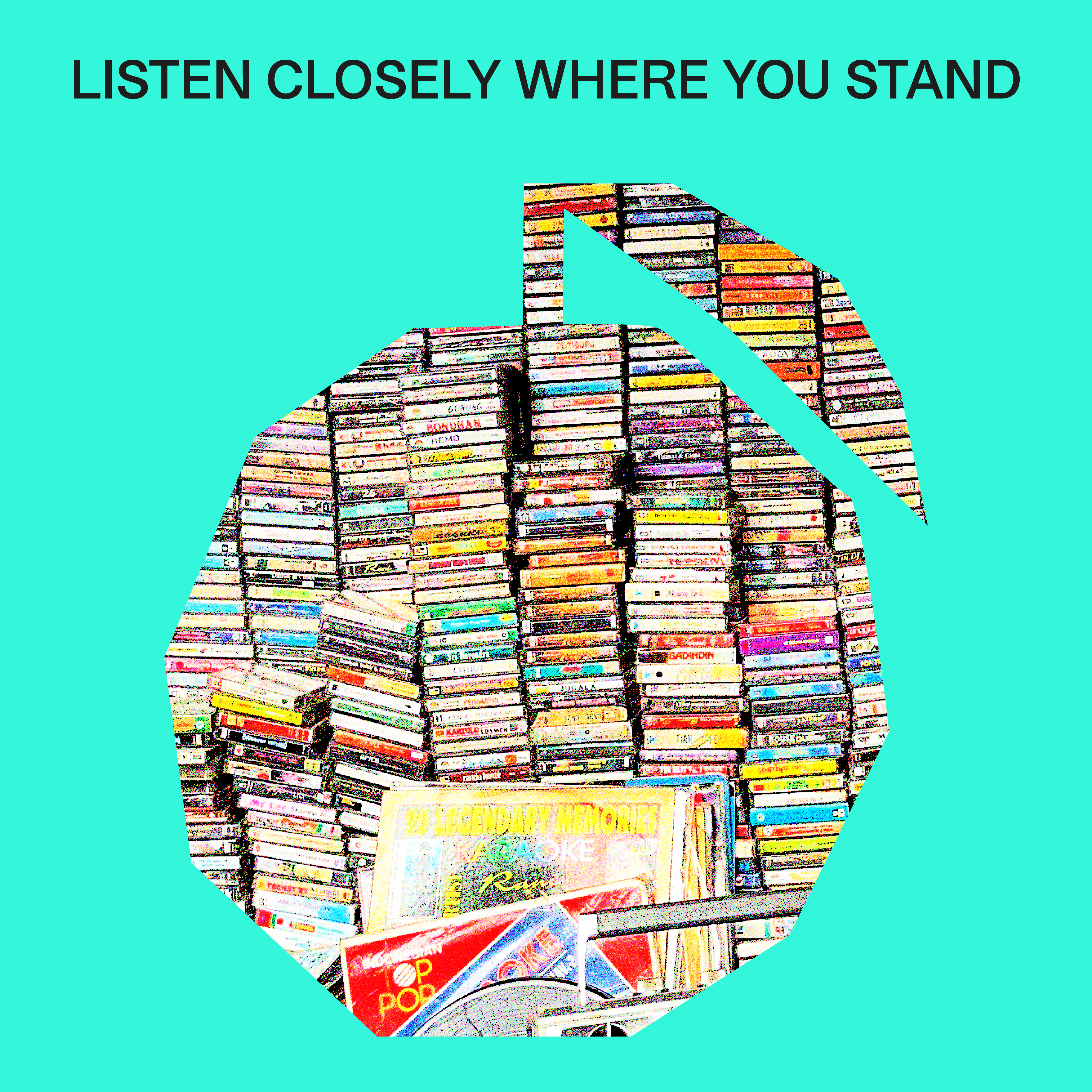Anywhere You Wander
What is Jakarta’s signature sound? What kind of sonic wall will encapsulate you once you set food outside your door? Anywhere You Wander is an echo of Jakarta's restless hum – engines, calls to prayer, street vendors, and passing crowds. Listen closely where you stand, and follow wherever the noise goes.
I set out, on foot mostly. And walking, I heard what I had not really listened to before. The chaos that lived beneath suddenly rose to meet me. It had always been there, this restless sound, but I had made myself deaf to it. And then I understood, each sound was someone's life happening. Through alleyways where air conditioners thrum, oil sizzles, and children play. Where humble sandals become toys, slapped against walls in rhythm, kicked across concrete in games only they understand. Where the violent drill of construction meets the song of a vendor’s bell. The call to prayer becomes a temporary sanctuary amidst urban cacophony. The food cart vendor arranges his future in metal and flame. The saccharine sound of advertising audio looping in a minimart, promising happiness in packages. The never-ending roar of cars and motorbikes, full of people on their way to their own destinations. A million possibilities moving past me every moment. When the rain comes, it speaks in a hundred voices - on a carport roof it drums, on concrete it slaps, on leaves it whispers. Jakarta breathes through these sounds. Millions of small happinesses and enterprises creating something larger than themselves. A rhythm that never stops, only changes its voice from morning to night, from one season to another. This is not chaos – this is the sound of being alive.
This film is part of the digital publication Norient City Sounds: Jakarta, curated and edited by Gisela Swaragita.
Biography
Published on August 27, 2025
Last updated on September 01, 2025
Topics
Why do people in Karachi yell rather than talk and how does the sound of Dakar or Luanda affect music production?
How do acoustic environments affect human life? In which way can a city entail sounds of repression?
A form of attachement beyond categories like home or nation but to people, feelings, or sounds across the globe.
A generative practice that promotes different knowledge. One that listens is never at a distance but always in the middle of the sound heard.
Snap
